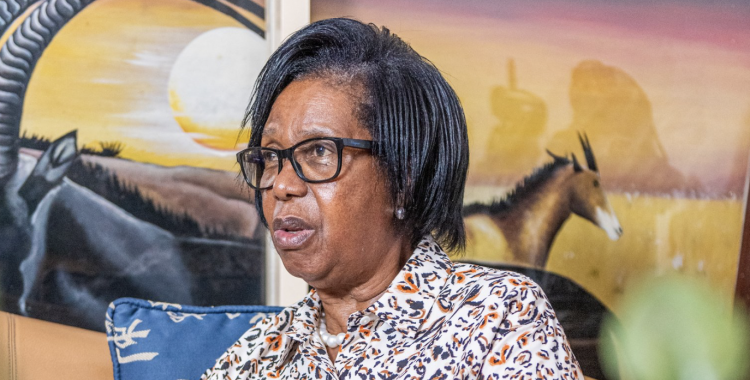It was through her husband that Albina Assis, chemical engineer and former Minister of Petroleum of Angola, received the news about the coup d'état in Portugal, on April 25, 1974, which put an end to 48 years of dictatorship.
“I picked up my books and went to university. That’s how I received the 25th of April”, the history of the Popular Movement for the Liberation of Angola (MPLA) told Lusa.
Albina Assis, who lived at the time in the Alvalade neighborhood, in Luanda, in a building where the only Africans were, says that, therefore, the date was not properly celebrated, but at the university, attended mainly by Europeans, children of Portuguese, she observed essentially negative reactions.
Albina Assis said she has no doubt that the Carnation Revolution was an impetus for Angola's independence, 500 years after Portuguese colonization, considering that this date also belongs to the Angolans and should be included in the country's History manuals.
“Because it was from then on that there really was a turning point for the beginning of the negotiations that led to Angola’s independence. Portugal never wanted to negotiate with the former colonies, it was only after the military uprising by the generals, after the 25th of April, that the hypothesis began to arise and the negotiations really began”, she stressed.
According to the former MPLA deputy, “there was a lot of wear and tear”, which was confirmed by the desertion of Portuguese people who did not want to go to war in Angola.
“It means that the colonial war was the main reason for the Capitães de Abril to carry out the coup”, considered Albina Assis, who was once Minister of Industry in Angola.
“The date is also ours”, she stated, regretting that Angolans do not feel the date is theirs too.
In hiding, Albina Assis said, the MPLA was from an early age part of the movement that was called, at the time, Revolutionary Youth, it was said that independence was a reality.
According to the nationalist, young people did not fight “to have this or that position”, but to see Angola independent “and to see Angolans changing their lives and living better”.
“That was our principle, when we thought about independence it was for that purpose, to improve the lives of Angolans and I believe that everyone who left here, who went abroad and was in the guerrillas, that was their mission, it was not to your personal good”, he stressed.
She therefore rejected those who say that in colonial times “it was better”, remembering that “there was slavery” and Angolans did not have citizenship. They were “assimilated or indigenous”, she stressed.
However, he admitted that the country does not correspond to the ideals of the struggle for liberation, achieved on November 11, 1975, arguing that “50 years of independence for a country is nothing”, and that European countries, such as Portugal and Spain, took the their time to develop.
“Over the last 30 years, I have seen the whole of Europe changing, so I believe that Angola today is not yet on the right path, in what it wanted to be, but it has to go there and we cannot think that we are going to take giant steps , we will take the steps that we can”, observed Albina Assis, who is a member of the MPLA Honor Council, a consultative body for the party president, João Lourenço, and was president of the board of directors of Sonangol.







